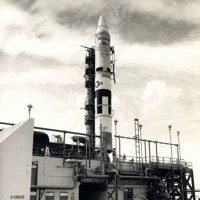Russia announced last week that it would cease cooperation with the U.S. under the highly successful Nunn-Lugar nuclear security program. In an email interview, Brian Finlay, a senior associate and director of the Managing Across Boundaries program at the Stimson Center, discussed Russia’s decision to withdraw from the program.
WPR: Why is Russia withdrawing from the Nunn-Lugar Cooperative Threat Reduction program?
Brian Finlay: In the immediate wake of the Cold War, dire financial need and insecurity across the Russian Federation mandated cooperation with the United States to protect the vast stockpile of weapons of mass destruction in the former Soviet Union from theft or diversion. Twenty-one years later, this assistance relationship remains an enduring political embarrassment for Moscow. Efforts to renew the legal agreement governing U.S. programming in the Russian Federation over the years have been met with resistance from political leaders, despite successful cooperation at the technical level leading to, notably, the elimination of more than 7,600 warheads, 902 ICBMs and 684 submarine-launched ballistic missiles. With the current Umbrella Agreement set to expire in June 2013, a combination of factors -- including a tense relationship with Washington over Iran and Syria, Russia’s newfound economic muscle and domestic political realities in Moscow -- have contributed to Russia’s decision to terminate USAID programs in-country, and more recently, to terminate the existing Nunn-Lugar agreement.

